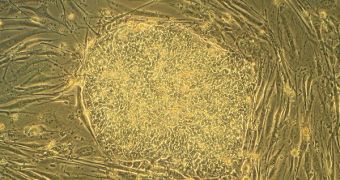Talk about giving too much power to a single individual. Judge Royce Lamberth is apparently the definition of not to do when in office. He basically put an end to federal funding for stem cell research in the United States, all by himself.
In a decision that can be qualified as misguided at best, the Judge made a decision that apparently froze all federal fundings that was destined for studies on human embryonic stem cells (ESC).
Needless to say, biologists are still reeling from the shock this decision made. In addition to depriving thousands, if not millions, from a chance to live, Lamberth also made sure that the US is again left behind in the field of stem cell researcher, where Japan reigns supreme.
Over the past few years, the countries have attempted to recuperate this lost time, but just when things were starting to improve, the scientific community receives another blow.
The situation was already devastating, following the terribly erroneous policies of George W. Bush, who decided on the country's stem cell research policy under the advisement of his clique of right-wing, religious extremists.
Now, Lamberth, who was set into office by Ronald Reagan, is following in on this “proud” tradition, at the behest of only two scientists. That's all it takes to stop federal spending to a critical area of science.
Stem cell research is critical to regenerative medicine. Studying these precursor cells could enable the creation of artificial tissue and replacement organs, that could save countless lives.
Whereas many countries around the world are constantly making progress, the United States is apparently intent on remaining a backward nation in the field.
Responsible for this unpardonable mistake are James Sherley and Theresa Deisher.
They sued the government because, get this, they felt that federal funding awarded for ESC would affect their own chances of getting funds for their work on adult stem cells. Talk about being selfish.
To make matters even more interesting, they opposed the policies president Obama put in place on moral grounds. This happened even after the issue has been debated on all sides for years.
James Sherley is a biologist at the Boston Biomedical Research Institute in Watertown, Massachusetts. Theresa Deisher is based at AVM Biotechnology, in Seattle. They were allowed to sue earlier this year, by a court of appeals.
The decision came as a shock to the scientific community, which again sees a greater effort being hampered by petty interests.
For example, Sanford-Burnham Medical Research Institute expert Evan Snyder says that stem cell research will now most likely come to a close.
It's still unclear from Lamberth's ruling as to whether the decision affects ongoing research as well.
It is also still hazy if the decision extends to the 21 lines of stem cell research that were allowed through the “mercy” of George W. Bush.
When contacted by reports, the National Institutes of Health (NIH) declined any comment.
All questions were redirected to the US Department of Justice, which is still weighing in on the implications this ruling has for stem cell research in the US.
The new decision was only made possible through the Dickey-Wicker Amendment, which basically forbids the Department of Health and Human Services (HHS) to use federal funds for conducting work that could result in the production of embryos, or that could harm embryos.
According to Lamberth, the fact that Obama's policy lifted federal restriction on stem cell funding is in “direct violation” of the Amendment.
At this point, the White House can select to sue back, and carry on a legal debate, or maybe pressure congressmen into eliminating the Amendment.
Considering that the document is an obstacle in the path of researchers seeking to create their own stem cell lines, the second option is clearly the most appealing.
According to the San Francisco-based California Institute for Regenerative Medicine (CIRM), the new decision is nothing more than another obstacle in the path of meaningful stem cell research.
“The decision is a deplorable brake on all stem cell research. Many discoveries with other cell types, notably the so-called reprogrammed iPS cells, would not happen without ongoing research in human embryonic stem cells,” CIRM president Alan Trounson writes in a press release.
“This decision leaves CIRM as the most significant source of funding for human embryonic stem cells in the US,” he adds, saying that most researchers will now move to search for private funding.
An issue the magnitude of stem cell research should never be left to the private sector, analysts say. It's in the US' best interest to continue the work, and to develop new approaches to saving lives, NewScientist reports.
“It would be immoral to unnecessarily delay the critical medical research that is vital for human embryonic stem cell therapies to reach patients suffering from chronic disease and injury,” adds the Chairman of the CIRM governing board, Robert Klein.
“We must remember that the microscopic cells used for this research would otherwise be thrown away by in vitro fertilization clinics, by couples that had finished their family planning,” he explains further.
“The leadership of CIRM, the state stem cell agency, deplores the decision of US District Judge Royce Lamberth to freeze federal funding of all human embryonic stem cell (hESC) research,” the organization says.
“This decision will disrupt the advances that are happening across the country to bring hESC-based therapies to patients in need,” the document concludes.

 14 DAY TRIAL //
14 DAY TRIAL //